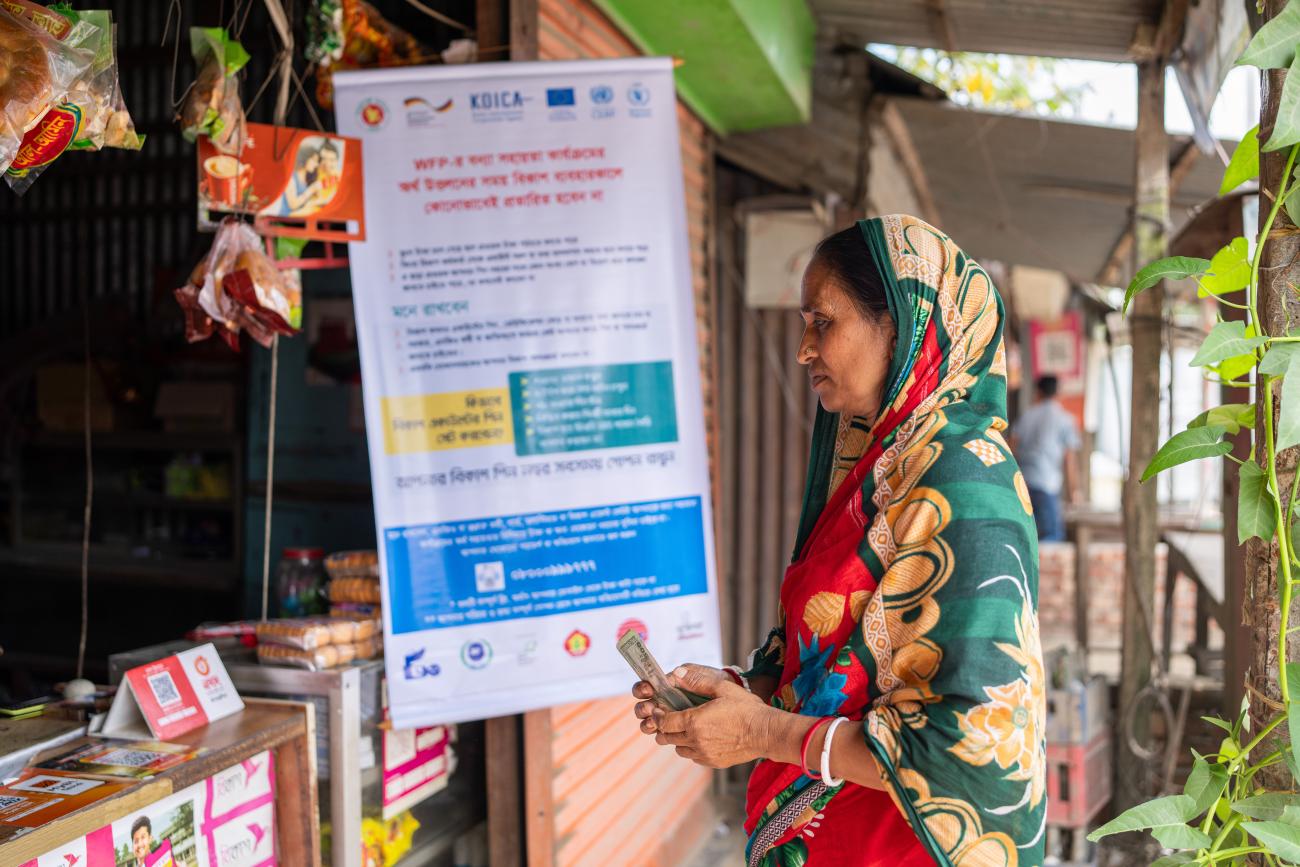DHAKA—The World Food Programme (WFP) has activated anticipatory action measures as water levels in the Jamuna River approach critical levels. This proactive response aims to mitigate the impact of the impending floods on vulnerable communities. This is the biggest anticipatory action support provided by WFP so far.
With the current significant increase in water levels at key points along the river, which already pose a severe threat to nearby communities, forecasts from the Flood Forecasting and Warning Centre (FFWC) indicate that water levels continue to rise, potentially escalating into a severe crisis.
In response to the Jamuna basin riverine floods, WFP and its partners, with the support of multiple donors including Korea International Cooperation Agency (KOICA), the Humanitarian Aid Department of the European Commission (ECHO), the Central Emergency Response Fund (CERF), and the Anticipatory Action (AA)-Trust fund supported by Germany and Ireland, the Bangladeshi Ministry of Women and Children Affairs, and the Ministry of Disaster Management and Response, successfully delivered the largest pre-financed humanitarian response ever. This response includes:
• Delivery of Anticipatory Assistance: BDT 5,000 was provided to more than 81,000 households four days before the floods peaked.
• Delivery of Anticipatory Shock Responsive Social Protection: Leveraging two national social protection systems (MCBP and EGPP), more than 8,100 government social protection assistance recipients living in flood-affected areas received aid before the floods peaked. This effectively protected the economic and nutritional gains from national social protection investments. Additionally, 1,000 households will receive emergency assistance through the mentioned social protection mechanism in the coming week.
Furthermore, over 20,000 of the aforementioned households are covered by flood insurance.
“We are deeply grateful for the support of our donors whose contributions are crucial in enabling us to act swiftly and effectively in the face of this looming disaster in coordination with the Government of Bangladesh,” said Dom Scalpelli, WFP Country Director in Bangladesh. “Our teams are working tirelessly to ensure that the most vulnerable families receive the support they need to weather this crisis.”
Activating anticipatory action protocols is a critical component of WFP’s strategy to reduce the impact of natural disasters. By acting before floodwaters reach their peak, WFP aims to safeguard lives and livelihoods, prevent property loss, and reduce the need for long-term humanitarian aid.
WFP’s efforts are focused on several districts along the Jamuna River, including Kurigram, Sirajganj, Gaibandha, Bogura, and Jamalpur. These areas have already experienced significant flooding, which has affected more than 5 million people and led to widespread displacement and shortages of food and clean water.
Dom Scalpelli emphasized the importance of community resilience and preparedness in his statement: “Our anticipatory actions are designed not only to provide immediate relief but also to strengthen the resilience of communities against future floods. We are committed to working with local partners and authorities to ensure these efforts are sustainable and impactful.”
As part of the anticipatory action plan, WFP coordinates with other UN agencies and local organizations to ensure a comprehensive and efficient response. The coming days will be critical as the organization continues to monitor the situation and adjust its operations accordingly.
To sustain its response, WFP faces a funding gap of US$13.2 million and urges the donor communities to come forward to help the vulnerable communities.
For more information, please contact:
Tareq Salahuddin, Communications Officer, WFP Bangladesh; tareq.salahuddin@wfp.org













